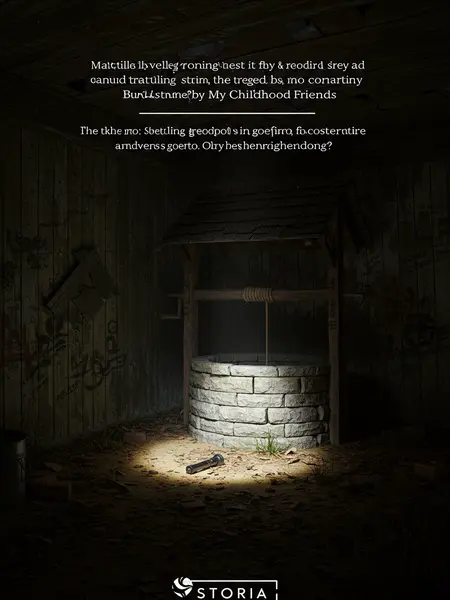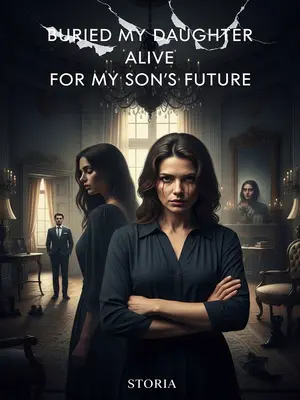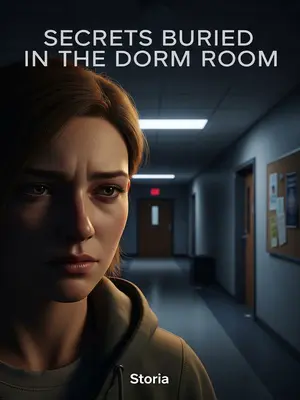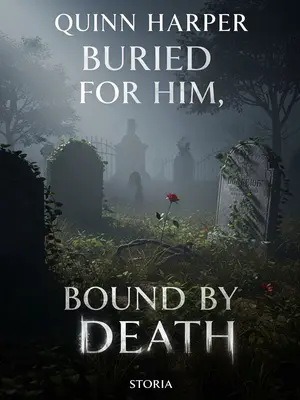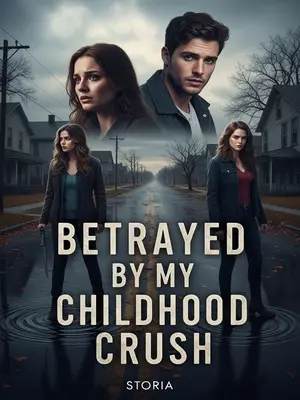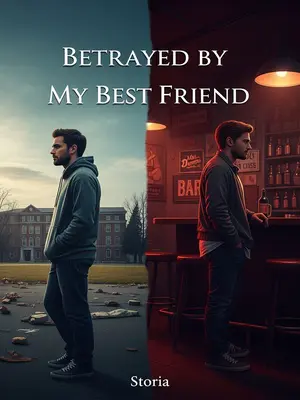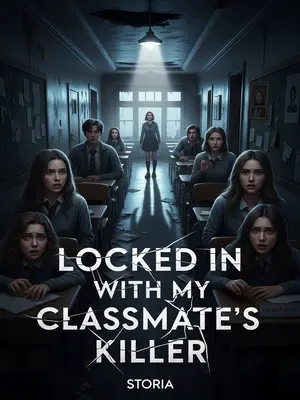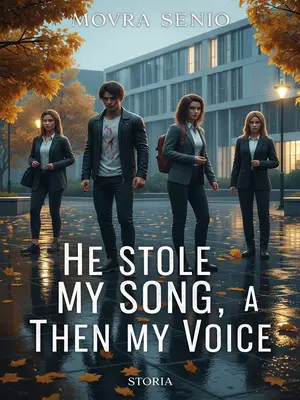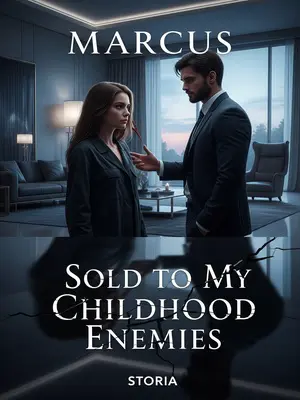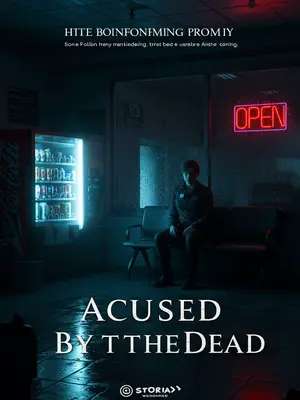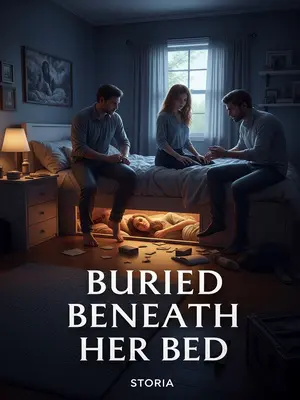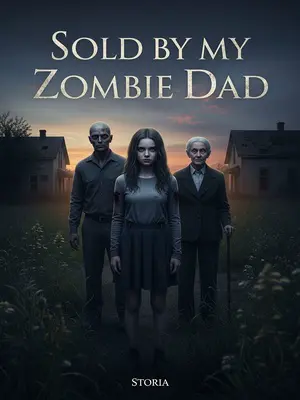Chapter 2: Guilt and Ghosts
I’d left those woods years ago.
Sometimes I wondered if the pines still remembered me. Now, I’m a senior partner at a top law firm in downtown Boise.
The skyline looked nothing like Silver Hollow’s distant hills. My office had floor-to-ceiling windows, the city humming below. Each day, I wore a suit sharper than anything I’d owned as a kid—sometimes I’d look at my reflection and barely recognize the man staring back.
I thought I’d never return to the small town where I grew up.
Every holiday, when friends talked about going home, I always found an excuse. Silver Hollow was just a dot on the map, a place I’d left behind for good—or so I told myself. But in quiet moments, the memory of those woods gnawed at me.
But even though my career was thriving, my wife and I were never able to have children.
Our house felt too big, echoing with a kind of silence that fancy furniture couldn’t fill. We’d done everything by the book—savings, investments, vacations in Aspen—but something was always missing. No amount of late-night talks or quiet Sunday mornings could change the fact that the nursery upstairs remained empty.
We tried everything—doctors, treatments, therapy—but nothing worked.
There were so many clinics, so many tests. I memorized the parking lots outside Boise’s best fertility specialists. My wife, Emma, kept stacks of folders on her nightstand, full of charts and numbers. Each failed cycle was another tiny funeral.
My wife became obsessed, praying at every church she came across.
She’d light candles at the big downtown cathedral, kneel on creaking pews in roadside chapels, cross herself as we passed little country churches on our weekend drives. It was like she hoped that somewhere, someone was listening, and maybe—if we tried hard enough—they’d send us a miracle.
One day, when we went out for a picnic, she ran off again to pray at a tiny, run-down chapel.
The place was barely standing—white paint peeling, an old bell leaning in the tower. We’d planned to eat by the river, but she veered off toward the church without a word, her sundress fluttering as she hurried up the rickety steps. I sighed and followed, clutching our cooler and blanket.
Helpless, I followed her.
Inside, the air was thick with dust and the faint scent of candle wax. Emma knelt at the altar, head bowed, lips moving in silent prayer. I leaned against the doorframe, feeling like an intruder in my own marriage.
As we turned around, we were startled by someone standing behind us—he looked like a homeless man.
He had a wild beard, faded Army jacket, boots caked in mud. He stood just inside the doorway, hands jammed in his pockets, eyes sharp and oddly knowing. I stiffened, instinctively moving closer to Emma.
He spoke directly: “You two have been married for years and are hoping for a child, aren’t you?”
His voice was low and gravelly, with the edge of someone who’d seen too much. Emma’s eyes widened. For a split second, I wondered if he’d been watching us, or if it was just a lucky guess. I braced myself for some con or sob story.
I scoffed at such tricks.
“Buddy, we’re not interested,” I muttered, my voice flat, trying to sound more annoyed than rattled. I’d heard my share of street preachers and hustlers on the courthouse steps.
But my wife, thinking she’d met some kind of prophet, nodded eagerly.
She gripped my hand, her eyes shining with hope and desperation. “Yes! We’ve been trying for so long. Can you help us?” Her voice quivered, caught between faith and heartbreak.
He looked at me meaningfully: “Your husband did something wrong as a kid. Only if he gets forgiveness from the other party can you have a child.”
His gaze pinned me in place—sharp, unwavering. It felt like he could see right through me, back to the scared little boy I used to be. I swallowed, throat suddenly dry. Emma squeezed my arm.
After saying this, he turned and walked away quickly.
Without another word, he slipped out the door, the jingle of the chapel bell fading behind him. I watched him disappear down the road, wondering if he was just another drifter or something else entirely.
My wife immediately took it seriously and anxiously asked me what I had done wrong.
She rounded on me, her eyes searching my face. “Caleb, what did you do? Who do you need to apologize to?” Her voice trembled with hope and fear, as if the answer might change everything.
I had no choice but to make up a story about stealing a neighbor’s chicken when I was a kid to calm her down.
I forced a laugh, trying to make light of it. “Back in Silver Hollow, the neighbor’s hens used to wander into our yard. I might’ve... borrowed one or two for fun. That’s probably all he meant.” My heart pounded, praying she’d buy it.
“That’s easy to fix. Just buy some nice gifts, go confess, and ask for forgiveness.”
She beamed, already making plans—baked goods, maybe a basket of fruit, a heartfelt apology. “People forgive kids. You’ll see.”
I shook my head bitterly. What I’d done could never be forgiven.
Inside, my thoughts spun. If only she knew—the truth was darker than any stolen chicken. It was the kind of thing you carried like a stone in your pocket, heavy and sharp, never daring to let it go.
The real crime was that we once sealed little Joey inside the dried-up well.
His name still sent a chill down my spine. Joey Callahan, the mayor’s pride and joy, the kid who’d always had the best toys and the worst temper. I could see his face in my mind—freckles, gap-toothed grin, a look that said he’d never get in trouble, no matter what.
Back then, among our group of friends, the youngest, Joey, was the most annoying.
He was a loudmouth, always bragging about his granddad’s fancy car or the new bike he’d get for Christmas. Even when we tried to leave him behind, he’d find a way to tag along, demanding to be in charge.
Even though he was the youngest, he relied on his grandfather being the mayor and always bullied us.
He’d shove us, steal our snacks, threaten to tell on us for the smallest things. It got so bad that sometimes we’d plan entire days just to avoid him. But it never worked—Joey always found us.
So, we decided to teach him a lesson.
It was Marcus’s idea, really. He was tired of getting bossed around, and we all wanted to see Joey scared for once. We didn’t mean for it to go so far.
Taking advantage of a day playing in the woods, we tricked him into an old, dried-up well we’d just discovered.
The well was hidden behind a tangle of blackberry bushes, its stones crumbling, the rope and bucket long gone. We dared each other to get close, hearts pounding with the thrill of danger. When Joey showed up, we made it sound like a secret club—something only the brave could join.
“If you don’t make a sound in there, each of us will give you a candy bar every day from now on.”
The challenge was simple: be brave, stay quiet, win candy bars. Joey’s eyes lit up, always greedy for more. In a town where candy bars were as rare as snow in July, it was the ultimate prize.
In our small town, candy bars were rare, so he jumped in without hesitation.
Joey didn’t even think twice—he swung his legs over the edge and dropped down, a triumphant grin on his face. He probably thought we were just kidding around, like always.
From the bottom of the well, Joey’s painful cries rang out: “My leg is broken, hurry and save me…”
His voice bounced up the stone walls, high and shrill. Panic hit me like ice water. The sound of real pain was nothing like the jokes or dares we’d shared before. I froze, heart hammering in my chest.
We immediately panicked. If the mayor found out his grandson’s leg was broken, our families would be in big trouble.
We knew what the mayor was capable of—he’d shut down the whole town if Joey so much as scraped his knee. We imagined our parents called into his office, the shame, the trouble. It was more than we could handle.
It was Marcus who came up with an idea. He shouted into the well:
His voice was steady, trying to sound tough. “You broke the rules, Joey! If you make another sound, you lose the game and owe us candy bars. That’s how it works.” He looked at the rest of us, daring us to disagree.
“You broke the rules! If you make another sound, you lose and have to give us a candy bar every day.”
The threat was simple, but Joey’s whimpers faded to quiet sobs. I stared at my sneakers, not daring to look at the others. We all knew we’d gone too far, but nobody wanted to be the one to cave.
Then we covered the well with a big rock and hid it with dead leaves.
We found the heaviest stone we could carry, grunting and sweating as we heaved it into place. Leaves rained down from the branches above, sticking to our shirts, clinging to the guilt already growing in my chest. When we finished, the well looked like any other patch of forest floor—silent, forgotten.
That night, the mayor called the police, and the townspeople searched the woods with them.
Searchlights swept through the woods, voices calling Joey’s name late into the night. My mother hugged me tight, not knowing what I’d done. I lay awake, every creak of the house sounding like footsteps coming for me.
But the old well was well hidden and unknown to others. We disguised it carefully, so no one found it.
The police dogs sniffed every trail, but none led to our secret. The well lay in shadow, invisible beneath our makeshift cover. We barely spoke for days, afraid the truth might slip out.
My friends and I secretly laughed at how clueless they were.
In the safety of Marcus’s basement, we tried to act tough—making jokes, cracking open sodas, pretending we were in control. But every laugh felt forced, brittle around the edges.
When we thought Joey had been punished enough and wanted to let him out,
We finally decided to end the game. We figured he’d learned his lesson, that it would all be fine. The woods were quiet as we returned, hearts pounding, barely daring to breathe.
We shouted his name at the wellhead, but there was no answer from inside.
The silence that answered us was thick and absolute. No cries, no shuffling, not even a whimper. My stomach twisted in knots.
“He… he couldn’t be dead, right?” We panicked immediately.
Marcus’s face went pale, and for the first time, I saw real fear in his eyes. None of us wanted to check, but we were too scared to leave.
We hurriedly covered the well with dead leaves again and agreed never to speak of it.
In a rush, we threw more branches and leaves over the rocks, hands shaking so badly we could barely grip the twigs. We swore—on our lives, our futures—that we’d never say a word. The pact hung over us like a shadow.
Time flew by, and I almost forgot about it.
The years blurred together—college, first jobs, cross-country moves. The well faded into a half-remembered nightmare, a ghost story I told myself wasn’t real.
Just then, my phone rang. It was a call from an unknown number.
I hesitated before answering, the area code from back home. My palms were suddenly clammy.
I answered, and an anxious male voice came through:
“Caleb? It’s Marcus. You remember the old well, right? Listen, we’ve got a problem—someone’s gonna build a house right on top of it. We need to talk. Now.”
His voice cracked, rougher than I remembered. My chest tightened as the memories rushed back.
“Something big is about to happen.”
There was a tremor in his words, the kind of fear you only feel when the past claws its way into the present. My hands shook as I pressed the phone to my ear.
